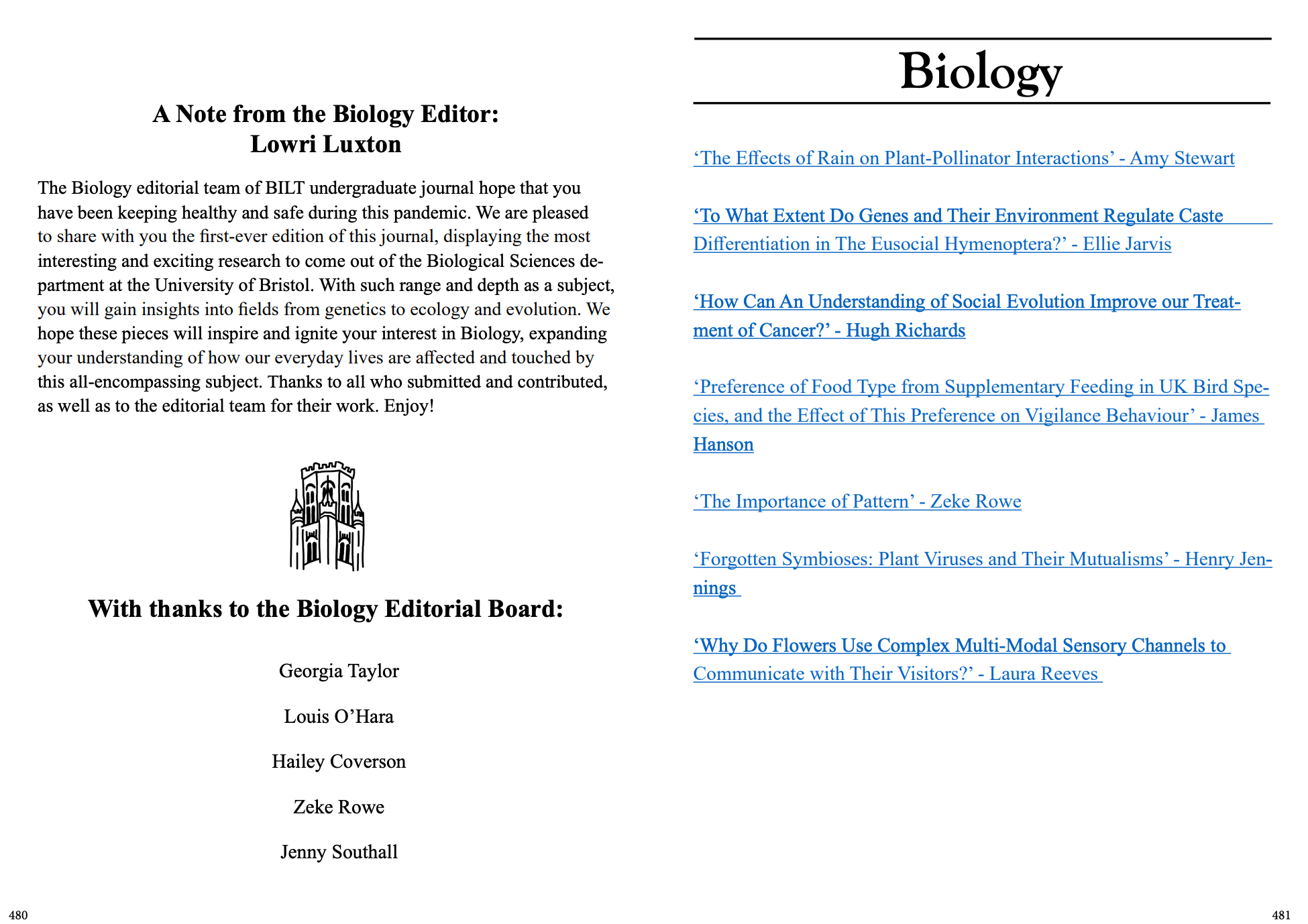By Edward Deacon, SciTech Digital Editor
The first edition of an undergraduate research journal authored by Bristol students launched earlier this month – the first of its kind at Bristol University – receiving over 200 submissions from students across several disciplines
The University of Bristol Undergraduate Research Journal released on the 3rd of July has been launched by postgraduate student Emily Kinder, its Editor-in-Chief, as part of her ‘Students as Researchers’ project as a Student Fellow for the BILT (Bristol Institute of Learning and Teaching).
Encompassing an array of subjects at the University, from the Arts and Social Sciences to Humanities, Sciences, and Languages, the journal has had a wide-reach to many students with its first edition receiving over 200 submissions – something Emily describes as ‘an extraordinary response’.
Speaking to Epigram, Emily explains that creating the journal for her project drew on a concept from a pedagogy called ‘Research-Informed Teaching’ (RIT), which ‘places emphasis on developing research and enquiry skills and aims to develop a research culture for students to be engaged with and to situate their own University work in’.
We have something VERY exciting to share with you... our first ever UNDERGRADUATE RESEARCH JOURNAL in now available! With forewords from @TansyJtweets and @emilykinder15 and contributions from 12 disciplines there is something for everyone to enjoy! ➡️➡️➡️ https://t.co/TzI02QHt7i pic.twitter.com/i7vQa7Vgih
— Bristol Institute for Learning and Teaching (@BILTOnline) June 25, 2020
In planning a trip to take 30 students to the British Conference for Undergraduate Research (BCUR) in early April – ‘a national conference which Bristol has never attended before’ – Emily found that many other Universities had undergraduate research journals and wondered ‘why Bristol didn’t have one’.
Falling victim to the coronavirus, the conference was cancelled, but it nonetheless showed the lack of an undergraduate research journal for Bristol students – a feat Emily saw as ‘a brilliant way to engage students in research practices and celebrate their research, so I decided to do it’.
Speaking to students, Emily was struck by how many ‘did not see their work as proper research’, despite the fact that in Arts, for example, ‘analysis of literature and investigating primary sources [for essays] are equally valid methods of research’ alongside dissertations and projects. The desire for students to value their undergraduate research more highly was ‘the main inspiration for the journal’.
‘Rather than writing strictly for assignments, this journal provides students an opportunity to showcase interesting work within and outside the curriculum’
To create the first edition, Emily sought guidance from other Universities, two Department of History academics – Dr. James Freeman and Dr. John Reeks – and set up editorial boards for subjects that received enough interest to form a team.
In keeping with the aim of engaging students, ‘as much of the editorial process as possible’ was left to the appointed students; one of which was Lowri Luxton, the Biology Editor.
Considering the potential impact the journal could have on students, Lowri suggests ‘having this research journal could widen peoples’ ambitions: rather than writing strictly for assignments, this journal provides students an opportunity to showcase interesting work within and outside the curriculum’.

Praising its inception, she adds: ‘had this journal existed when I was an undergraduate, it would have motivated me to write articles or essays on subjects I took interest in outside of my modules.’
Whilst the initial aim of the journal was to ‘give students the experience of editing a journal and to celebrate the work that students submitted’, it became evident the journal could be used as a teaching resource – ‘as an example of high grade essays’ and as demonstration of ‘the prowess at Bristol’.
Commenting on the wider implications of the journal for teaching by academics at the University, Emily hopes the journal ‘will inspire them to experiment with innovative ways of teaching, and demonstrate the value in seeing undergraduate work as research’.
Emily hopes the journal ‘will inspire them to experiment with innovative ways of teaching, and demonstrate the value in seeing undergraduate work as research’
Looking ahead, Emily speaks about wanting the journal to reach a wider audience ‘such as other academic or research institutions’, and for it to ‘provide undergraduates with the skills and confidence to apply to national undergraduate research journals, or conferences – a stepping stone towards more research activities’.
Lowri offers a hearty testimonial, recommending that students get involved, having found it to be the ‘perfect opportunity’ to get a feeling for what writing and publishing for a journal is like.
She adds that, if nothing else, it offers a chance ‘to see the breadth of research coming from other undergraduates’.
In the coming academic year, Emily hopes for the journal to have more subjects involved. This seems an appropriate target given the journal has been ‘well received’, and ‘more students from other subjects will have heard about it and will want to be involved’.
Click here to view the first issue of the University of Bristol Undergraduate Research Journal.
Featured: University of Bristol Undergraduate Research Journal / Emily Kinder
Would you like to write for the Undergraduate Research Journal? Get involved.








